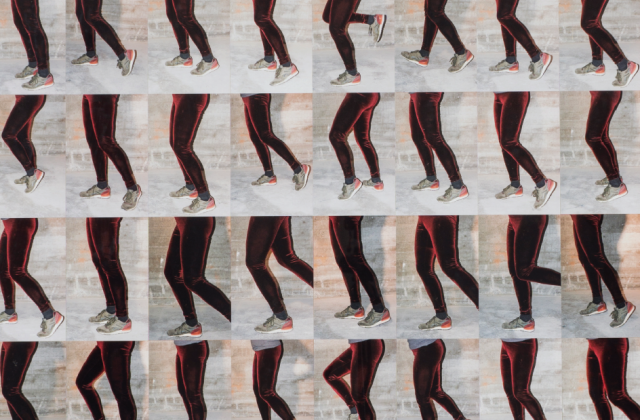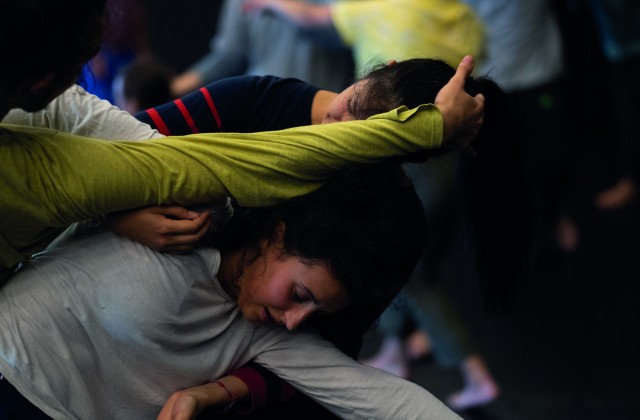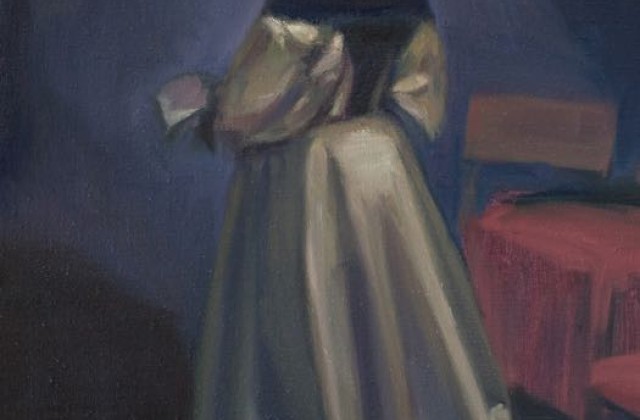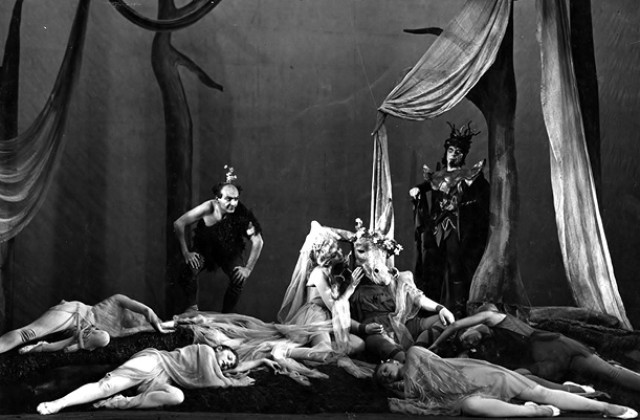Dossiers
Dossiers cluster articles and contributions concerning certain themes that circulate in art research. The editorial board welcomes new contributions that can complement the existing dossiers. In this way, dossiers can continue to grow over time.
Articles belonging to a dossier are indicated by a folder icon and the dossier name.
The art school as an ecosystem
This dossier of FORUM+ is dedicated to exploring the art school as an ecosystem in the 21st century. What does the 21st-century art school look like? What remains of the original mission of conservatoires and academies, after a series of institutional reforms and the introduction of research in the arts? And what challenges does the future hold? These are some of the questions that "The art school as an ecosystem" seeks to address.
(Trans)literate art
In today's globalized world, using thousands of spoken languages and hundreds of scripts induce many challenges. Language entails more than mere communication, as it also conveys identity, culture, and power dynamics between societal groups. Artists make their voice known within the debate on the role language, multilingualism, and translation can play. Their search for a way to deal with our multilingual world can fuel, question, or examine the current debate.
Research methods in the arts
Opening up a space for dialogue about artistic research, its methods and its vision on methodology has been the motivation behind this issue. Artistic researchers will face the future with inventiveness, character, thinking power, devotion as well as rebellious decisiveness where needed. Not only by seizing the sometimes radically innovative opportunities that method and research bring to an artistic context, but also by exploring new pathways, pondering territorial expansions and creating tools that are specific to the discipline.
Conversation, participation and co-creation in the arts
Conversation, participation and co-creation: these are buzz words in the arts today. This dossier contains contributions on various forms of artistic collaboration and shared authorship, but also on social collaborations between artists and citizens in participatory art or in social-artistic projects. If we want to face global challenges, cooperation is not only necessary, but also an ethical responsibility in which the arts are already taking the lead today.
Dance and research
The discourse on dance as a form of thought is growing steadily and has its own place in research in and about the arts. How do dance and knowledge, body and reflection, movement and discourse relate to each other? Or better yet, how can they mobilise each other? Is a dancing body also a thinking body? Both the growing field of dance science and the rise of artistic research in practice-based dance education have played a vital role in developing the idea that dance also embodies and provokes knowledge. These developments feed the realization that dance not only thinks by doing, but also makes you think.
Drawing as a method
In a research methodology, drawing can be used at several levels: as an action to shape and communicate initial idea sketches, as a tool to graphically connect individual parts in initial research, as a means to express experiences or perceptions, but also as a non-verbal individual or collective reflection method. However, this raises questions about the functioning of drawing as a method: How does 'it' work? What knowledge or data are evoked or generated through drawing? And what makes drawing as a method specific in comparison to other artistic actions or methods?
metaFORUM
As a platform for research in the arts, FORUM+ also wants to contribute to the debate on research in the arts. The metaFORUM dossier not only collects opinion pieces and editorials on the status of artistic research, but also contains reviews of art books, exhibitions, and artistic works that are the result of research. The DIALOGUE section also allows authors to respond to previously published contributions. In this way, the magazine aims to provide a space for critical reflection and discussion.
Fact as fiction
Fact as fiction explores the ambiguous boundary that exists between documentary and fiction. These contributions are based on historical sources, oral testimonies and archive materials. Yet the result is not documentary art in the strict sense of the word. The artists translate their sources into an artistic and imaginative universe and thus deliberately blur the boundaries between what we commonly consider to be fiction and reality. Central to the series is the relationship between fact and fiction; two concepts that need to be thoroughly rethought in today's post-truth climate.
Repertoire and artistic property
Anyone with a knowledge of twentieth-century art history knows that the reuse of images is of all times, and all arts: painters, musicians, theatre makers, and dancers all sought a way of dealing with the artistic canon. They copied, adapted or made contemporary adaptations of canonical works. Increasingly strict copy-right regulations, however, accuse artists who openly draw on the work of others of plagiarism. At the same time, in some art forms, there is such a respect for the artistic canon that the public is averse to any form of experiment or innovation. This tension between creativity, artistic or intellectual property, and the canon is central to this dossier.
Shakespeare in the Low Countries
On the occasion of Shakespeare's 400th anniversary, four hundred years after the death of the famous author, Toon Brouwers initiated a series on memorable Shakespeare plays in the Low Countries. Brouwers invites researchers and theatre lovers to write a contribution about a particular Shakespeare performance they attended in the distant or near past, and to place it in its historical and social context.
Museum Mayer van den Bergh
The Museum Mayer van den Bergh preserves about four hundred photographs from founder Fritz Mayer van den Bergh's estate. The original context of the 1900s has been lost. In a research project by the Royal Academy of Fine Arts Antwerp (in collaboration with ARIA, the Antwerp Research Institute for the Arts), which resulted in an exhibition, the historical and artistic perspectives on the archive were interwoven, and young photographers entered into a dialogue with the historical images.










